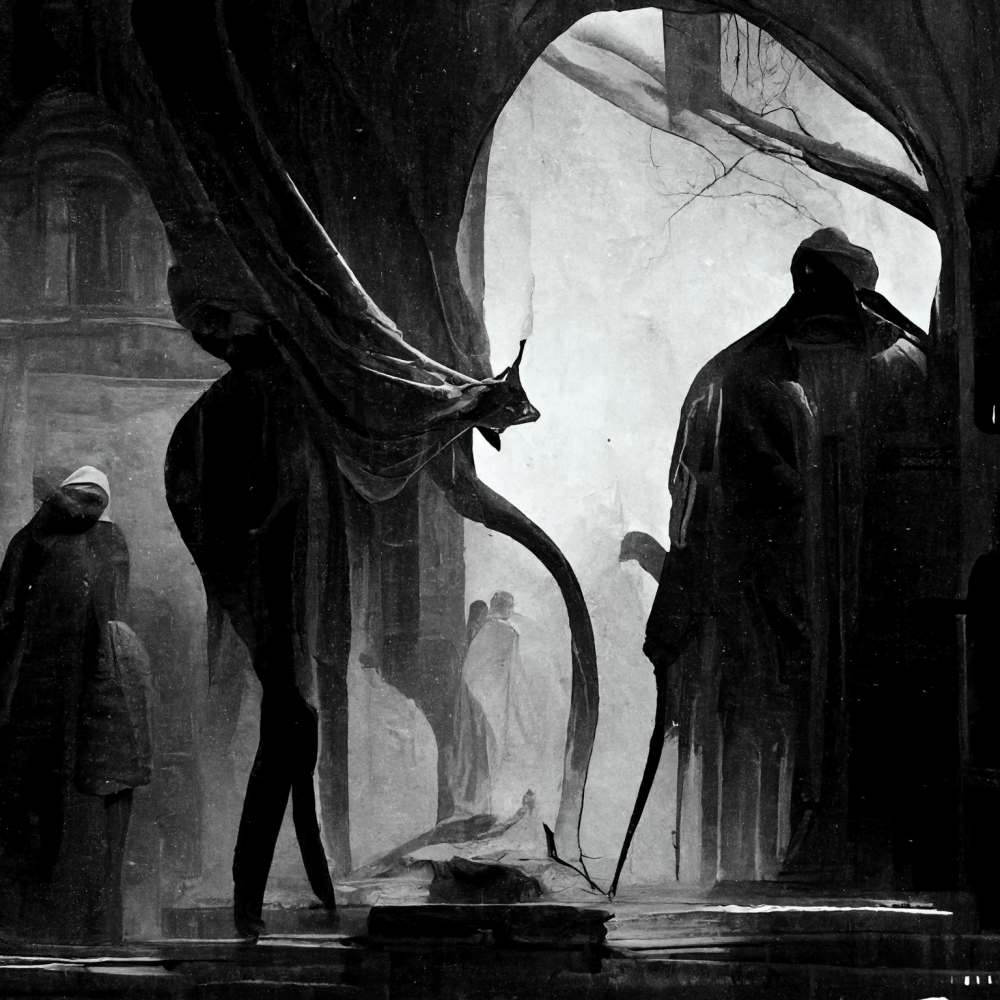The warm, soft dark of night: Difference between revisions
Amwelladmin (talk | contribs) No edit summary Tags: Mobile edit Mobile web edit Advanced mobile edit |
Amwelladmin (talk | contribs) No edit summary |
||
| (7 intermediate revisions by the same user not shown) | |||
| Line 1: | Line 1: | ||
{{a|otto|{{image|Der Teufel|png|''Devil is in the Detail but God is in the Gaps'', {{vsr|1875}}}}}}{{drop|O|ne of the}} manifold idioms that flowed from the verbose quill of that tedious Austrian plowright {{Otto}} and buried themselves directly into the inflated bowels of the English literary canon. | {{a|otto|{{image|Der Teufel|png|''Devil is in the Detail but God is in the Gaps'', {{vsr|1875}}}}}}{{drop|O|ne of the}} manifold idioms that flowed from the verbose quill of that tedious Austrian plowright {{Otto}} and buried themselves directly into the inflated bowels of the English literary canon. | ||
From {{dsh}}, which | From {{dsh}}, which he is supposed to have penned between delirious episodes as he lay dying of dengue fever in a filthy sanitorium in old Mandalay, {{buchstein}} invites us to consider the “warm, soft dark of night” — purblind, agitated, unbounded, sweaty and feverish — in which we commonly make the choices that decide our fate. A place and time to be contrasted with “the cold hard light of day” — a social configuration that never prevails at the time of any crux, when one would like it, but inevitably follows a leisurely time later, at which point we, and those we know and from whom we would ask respect, can calmly assess in hindsight the enormity of our actions. | ||
{{Quote| | |||
{{dsh warm soft dark of night}}}} | |||
{{C|Otto Büchstein}} | |||
Latest revision as of 08:43, 22 August 2024
|
The complete works of Otto Büchstein
|
One of the manifold idioms that flowed from the verbose quill of that tedious Austrian plowright Otto Büchstein and buried themselves directly into the inflated bowels of the English literary canon.
From Die Schweizer Heulsuse, which he is supposed to have penned between delirious episodes as he lay dying of dengue fever in a filthy sanitorium in old Mandalay, Büchstein invites us to consider the “warm, soft dark of night” — purblind, agitated, unbounded, sweaty and feverish — in which we commonly make the choices that decide our fate. A place and time to be contrasted with “the cold hard light of day” — a social configuration that never prevails at the time of any crux, when one would like it, but inevitably follows a leisurely time later, at which point we, and those we know and from whom we would ask respect, can calmly assess in hindsight the enormity of our actions.
Triago: Though my shaking pen prescribes a bitter arc
Yet carveth it these precious extant moments
To keep them safe from, and above, the noisy din
That hungrily devours much earnest wordage.
Yea, I wouldst preserve’t, yet
Upon the mannish tabernacle
Wherein are etched, in faltering runes,
The mortal strokes of our collect accomplishment.
Herewith, my paltry contribution. Mark it well, Herculio:
For I am dying, Equatorial Guinea, dying —
And in the warm, soft dark of night
Wherein our private phantoms scratch and scale
And assault our crumbling mental battlements
We dream of molten eternity cast upon our mould
But scarcely canst we credit ’t.
So be it —
- Dies
EXEUNT
